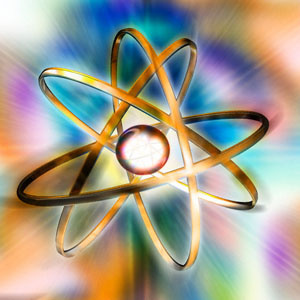Are We the Outsiders?
Why do Iranian people be left uninformed about the Geneva deal? By Javid Ghorban-Oghli

Public Relations Director of Iranian Atomic Energy Organization Ali Shirzadian has stressed that Iran is ready to process twenty-percent enriched uranium itself if Five plus One fails to fulfill its promise for supplying nuclear fuel for Tehran’s research reactor.
Commentary by Javid Ghorban Oghli, foreign affairs analyst and former Iranian ambassador to South Africa:
Shirzadian’s tone may be the sign of problems with the agreement made in Geneva talks. It may also show that Tehran has received concerning signals from unknown sources about fuel delivery. Another possibility is that Iran is trying to gain the upperhand and urge Five plus One to accept the offer for exporting uranium overseas and receiving nuclear fuel for Tehran research reactor.
However, for analysts and the public opinion the problem is the lack of detailed and convincing information about the Geneva deal. Iranian observers have based their analyses on the news reported by foreign media. Inside Iran, what we heard were only cries of victory. Non-transparency has always been a problem with the nuclear negotiations, especially with the latest case in Geneva.
For instance, Iran had announced that in Geneva talks, it would only discuss its proposal package, which largely ignored the nuclear program and wandered in the world of ideals; however, eighty percent of the Geneva discussions revolved around Iran’s nuclear program, transparency over the Qom uranium enrichment facility, exporting uranium to Russia and France for producing nuclear fuel, and agreements of added IAEA inspections. Surprisingly, Jalili and William Burns have also discussed human rights issues and the detention of three U.S. citizens in Iran, but no news has leaked about these talks.
Hence, despite the package proposed, Jalili and Burns discussed Iran’s nuclear issue in Geneva. The question is: why is the Iranian nation, as the key supporter of the administration in the nuclear track, left uninformed about Iran’s policy shift towards the United States? Why did Jalili agree with transferring uranium to a third country, while four years ago this plan was fiercely rejected? Why is an age-old taboo, that is, relations with the United States, suddenly turned into an innocuous matter?
What political changes have led to this u-turn? Khatami was pressured not to meet Bill Clinton in UN General Assembly. But now, without any preparation of the public opinion, Saeed Jalili meets the Bill Burns, the American fox, and nothing happens! Things should be made clear.
On what the spokesman of Iran’s Atomic Energy Organization has stated, it may by a sign of problem with the agreements made between Iran and Five plus One. Six world powers may have made stipulations for delivering nuclear fuel and Tehran might be trying to have the upper hand with this new threat. However, there is also the question that if Iran was going to follow enrichment inside the country, then what was the necessity of announcing the agreement for transferring uranium abroad and receiving nuclear fuel? Things have turned upside-down, and instead of foreigners, Iranians are the ’outsiders’ who should not be informed of the deal made.
Commentary by Javid Ghorban Oghli, foreign affairs analyst and former Iranian ambassador to South Africa:
Shirzadian’s tone may be the sign of problems with the agreement made in Geneva talks. It may also show that Tehran has received concerning signals from unknown sources about fuel delivery. Another possibility is that Iran is trying to gain the upperhand and urge Five plus One to accept the offer for exporting uranium overseas and receiving nuclear fuel for Tehran research reactor.
However, for analysts and the public opinion the problem is the lack of detailed and convincing information about the Geneva deal. Iranian observers have based their analyses on the news reported by foreign media. Inside Iran, what we heard were only cries of victory. Non-transparency has always been a problem with the nuclear negotiations, especially with the latest case in Geneva.
For instance, Iran had announced that in Geneva talks, it would only discuss its proposal package, which largely ignored the nuclear program and wandered in the world of ideals; however, eighty percent of the Geneva discussions revolved around Iran’s nuclear program, transparency over the Qom uranium enrichment facility, exporting uranium to Russia and France for producing nuclear fuel, and agreements of added IAEA inspections. Surprisingly, Jalili and William Burns have also discussed human rights issues and the detention of three U.S. citizens in Iran, but no news has leaked about these talks.
Hence, despite the package proposed, Jalili and Burns discussed Iran’s nuclear issue in Geneva. The question is: why is the Iranian nation, as the key supporter of the administration in the nuclear track, left uninformed about Iran’s policy shift towards the United States? Why did Jalili agree with transferring uranium to a third country, while four years ago this plan was fiercely rejected? Why is an age-old taboo, that is, relations with the United States, suddenly turned into an innocuous matter?
What political changes have led to this u-turn? Khatami was pressured not to meet Bill Clinton in UN General Assembly. But now, without any preparation of the public opinion, Saeed Jalili meets the Bill Burns, the American fox, and nothing happens! Things should be made clear.
On what the spokesman of Iran’s Atomic Energy Organization has stated, it may by a sign of problem with the agreements made between Iran and Five plus One. Six world powers may have made stipulations for delivering nuclear fuel and Tehran might be trying to have the upper hand with this new threat. However, there is also the question that if Iran was going to follow enrichment inside the country, then what was the necessity of announcing the agreement for transferring uranium abroad and receiving nuclear fuel? Things have turned upside-down, and instead of foreigners, Iranians are the ’outsiders’ who should not be informed of the deal made.

